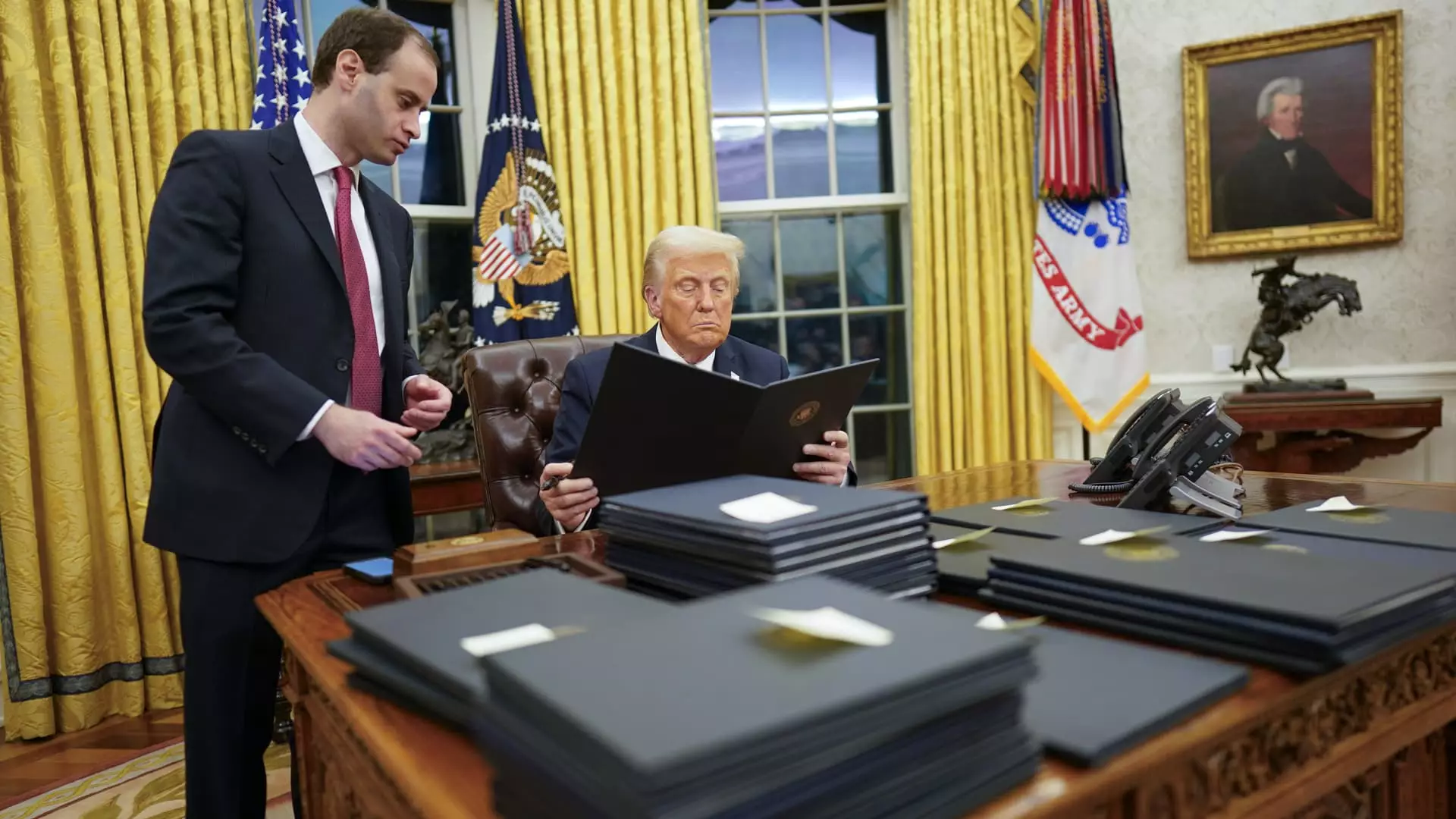The inauguration of President Donald Trump marked a significant pivot in U.S. energy policy, characterized by a series of executive orders designed to promote fossil fuel production while scaling back environmental commitments made by the previous administration. This article delves into the implications of Trump’s energy strategy, exploring its potential effects on industry dynamics, environmental policies, and the larger geopolitical landscape.
From Day One, Trump made it clear that his administration would prioritize energy independence, viewing it as a matter of national security. In his first hours in office, he declared a national energy emergency underscoring the supposed inadequacy of the country’s energy supply, which he claimed posed a threat to national stability. By framing energy production as a decisive factor in national security, Trump sought to mobilize support for his policies among both industry stakeholders and nationalists who advocate for American self-sufficiency.
However, the energy landscape is multifaceted, and while the intent to increase domestic production is evident, the realities of market conditions complicate the execution of such ambitions. Major oil executives, such as those from Exxon and Chevron, have indicated that production levels will remain attuned to market demands, raising questions about the effectiveness of Trump’s push for a more aggressive fossil fuel agenda.
Despite America’s status as the world’s leading oil and gas producer, Trump’s fossil fuel-centric approach comes at a time of growing global concern regarding climate change. In stark contrast to the Biden administration’s commitment to transitioning to renewable energy sources, Trump’s agenda reflects a retrogressive stance, prioritizing fossil fuel projects to reinforce America’s position as a dominant global energy player.
Trump’s executive orders indicate a willingness to bypass processes established to protect the environment, often provoking legal challenges. His directives, including the rescindment of initiatives aimed at increasing electric vehicle sales, showcase a controversial strategy that does not align with the global momentum towards cleaner energy transition. As debates surrounding climate policy become increasingly polarized, the sustainability of Trump’s approach remains questionable.
The legal authority surrounding many of Trump’s actions raises significant uncertainty. For instance, while Trump ordered the withdrawal from the Paris Agreement, this decision may not be without challenges in the courts. The implications of such a withdrawal extend beyond surface-level energy policies, signalling a disconcerting departure from international partnerships aimed at combatting climate change.
Traditionally, efforts to mitigate climate impacts receive bipartisan support when framed around public health and long-term economic stability. However, Trump’s assertion that environmental regulations are superfluous draws a stark line in the sand, polarizing public opinion and potentially estranging key investors concerned about the long-term viability of fossil investments.
Trump’s decision to pause funding under the Inflation Reduction Act, particularly for initiatives supporting electric vehicles, marks a tangible shift back to fossil fuel dependency. This is further evidenced by moves to expedite drilling projects and dismantling previous bans on offshore drilling in coastal waters. By reinstating these practices, the administration clearly intends to stabilize and potentially elevate the fossil fuel industry, jeopardizing the viability of emerging clean technologies.
Furthermore, the concentrated focus on natural gas development in Alaska and the swift reexamination of liquefied natural gas projects demonstrate an intent to capitalize on domestic resources, albeit at a time when global energy trends are increasingly favoring renewables. This dichotomy indicates a profound misunderstanding of where the future of energy markets is heading.
As the Trump administration embarks on this bold energy agenda, the ramifications will resonate across environmental, economic, and geopolitical landscapes. The administration’s approach reveals a calculated bet on fossil fuels while ignoring the urgent need for sustainable practices in an ever-evolving global context.
The dichotomy between immediate gains from fossil fuel production and the long-term implications of neglecting renewable energy raises pivotal questions about the future of energy policy in America. Stakeholders, including policymakers, industry leaders, and the global community, must grapple with the enduring impact of these decisions long after Trump’s term has ended, redefining the relationship between energy production and environmental responsibility in a rapidly changing world.

Leave a Reply